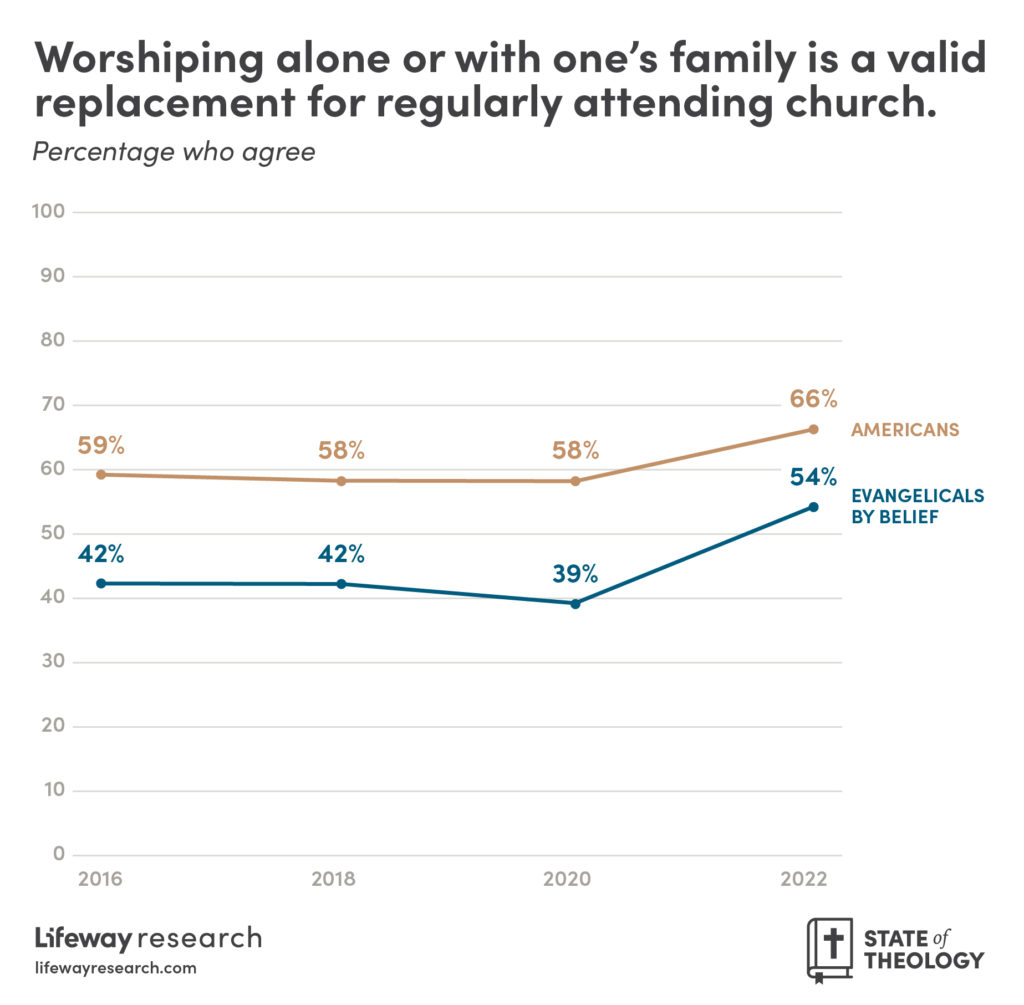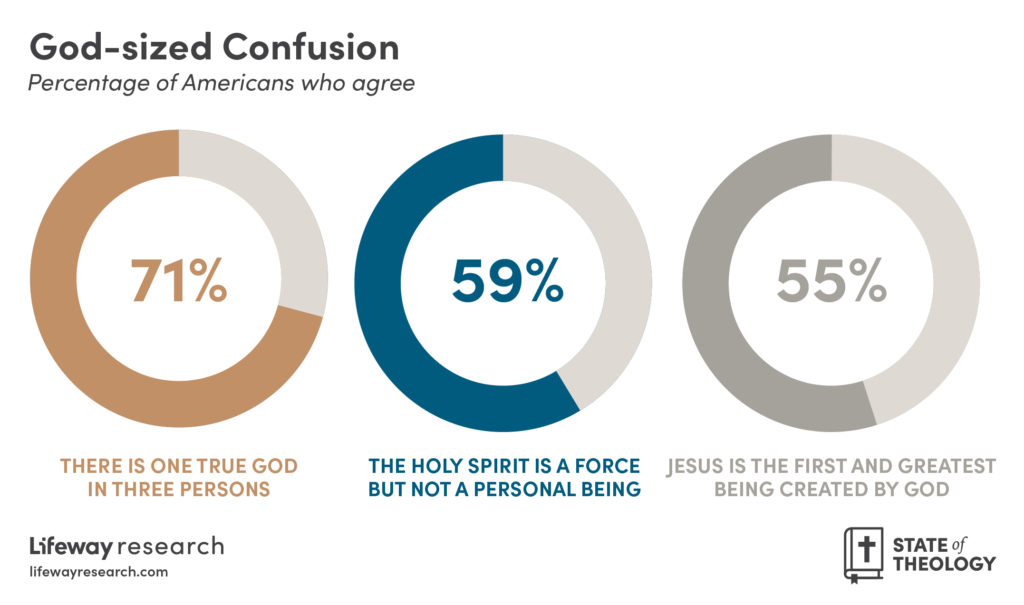Americans experienced seismic changes over the past two years, including, for many, how they attend church. The shift in behavior coincides with a shift in theology.
The biennial State of Theology study conducted by Lifeway Research found relative stability in some of the religious and cultural beliefs U.S. adults hold. After months of quarantines and social distancing, however, Americans increasingly believe worshiping apart from a church is as good as attending church services.
In March 2020, as the COVID-19 pandemic was just beginning in the United States, 58% of Americans said worshipping alone or with one’s family was a valid replacement for regularly attending church, with 26% strongly agreeing. In 2022, 66% believe worshiping apart from a local congregation is as valid as worshiping with one, with 35% strongly agreeing.

Additionally, most Americans (56%) don’t believe every Christian has an obligation to join a local church. Fewer than 2 in 5 (36%) say this is something all Christians should do.
Tracking surveys from Lifeway Research throughout the pandemic found U.S. Protestant churches were open at pre-pandemic levels by summer of 2021 and into 2022, but early this year few churches had reached pre-pandemic attendance levels.
“Religious identity, beliefs and behavior are interrelated,” said Scott McConnell, executive director of Lifeway Research. “When in-person church attendance behaviors were interrupted and habits were broken, it affected some Americans’ beliefs about the need to gather with other believers to worship.”
With many theological beliefs remaining stable, those that did shift point to areas where a changing U.S. culture may be impacting Americans’ religious perspectives.
The 2022 State of Theology study, sponsored by Ligonier Ministries, surveyed more than 3,000 Americans and follows previous versions in 2014, 2016, 2018 and 2020.
God-Sized Confusion
Most Americans believe in God, but they’re a little confused about who the divine is.
While 66% of U.S. adults say God is a perfect being and cannot make mistakes, half (51%) say God learns and adapts to different circumstances.
Almost 7 in 10 Americans (67%) say God accepts the worship of all religions, including Christianity, Judaism and Islam. A similar percentage (71%) say there is one true God in three persons: God the Father, God the Son and God the Holy Spirit.
Despite a majority of Americans affirming a Trinitarian God with three divine persons, most still aren’t sure about how that applies to Jesus or the Holy Spirit. Slightly more than half (55%) believe Jesus is the first and greatest created being. Another 53% say He was a great teacher but not God. Close to 3 in 5 (59%) believe the Holy Spirit is a force but not a personal being.


